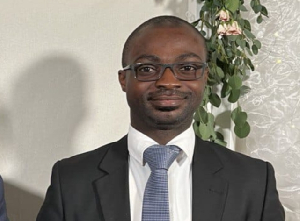Mr. Sam Jonah has said Ghanaians’ obsession with degrees has led to the production of “certified unemployables.”
In a speech to Rotarians in Accra titled ‘Down the up escalator – Reflections on Ghana’s future by a senior citizen’, the executive chairman of Jonah Capital, an equity fund based in Johannesburg, South Africa, suggested that Ghana “completely overhaul our educational system” as one of the things needed to put the country on the right path of development.
“I am not talking about the duration of school,” he clarified, adding: “I am talking about the quality of education and the prioritization of what our children are taught.”
He said, “a useful educational system must be able to groom young people to believe in themselves and to have the necessary skills and attitudes to form an effective, efficient labour force.”
“As the legendary Dr. Kwegyir Aggrey opined, our education must train the heads, hands and heart of our youth,” he noted.
To him, this calls for not only Science, Technology, Engineering and Mathematics, but also vocational and technical education.
“Our inordinate obsession with degrees and certificates has turned most of our graduates into ‘certificated unemployables’ hardly suited to the needs of industry,” he observed.
He asked: “Are we preparing our graduates for the new skill sets needed for the future?”
“This is why I have never understood the kind of logic that informed the conversion of polytechnics into universities,” he noted.
In his view, “technical and vocational education have been crucial in Germany’s development.”
“Let us”, Mr Jonah urged, “relook at our priorities and reform the educational system, shifting away from grades and certificates to technical know-how, values and attitude building; an educational system which inculcates into our young people flexibility and adaptability; communication and emotional intelligence; creativity and innovation as well as ethical leadership skills.”
This, according to him, “is the only way we can compete in the 21st century, and from my perspective, we do not lack the human and material resources to create that kind of system.”
“We must shape the future we desire for our country today,” he added.
General News of Monday, 26 April 2021
Source: classfmonline.com













